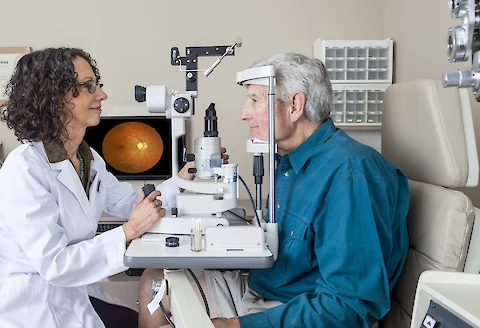
As a caregiver, you always want to provide the best care possible for your senior loved ones. Part of that care involves staying alert for signs of common health issues that can affect seniors. One such condition is macular degeneration, a leading cause of vision loss mainly affecting seniors. Early detection of this condition can make a significant difference in preserving vision and maintaining quality of life. You can empower yourself to recognize symptoms and take the necessary steps when you know more about macular degeneration.
Understanding Macular Degeneration
Macular degeneration is an eye disorder that affects the central part of the retina, called the macula, leading to loss of central vision. It's a typical age-related condition, meaning seniors are most susceptible.
Signs of Macular Degeneration in Seniors
Spotting the signs of macular degeneration early can make the difference between preserved and lost vision. Here are the crucial signs you need to watch out for:
- Blurred or fuzzy vision, especially in the center field of view
- Difficulty recognizing faces or other familiar objects
- A dark or empty area appearing in the center of the vision
- Straight lines appearing distorted or wavy
Remember, these signs might be subtle initially but tend to worsen over time, so close observation is critical. It's always better to err on the side of caution. Schedule a detailed eye exam if you think your senior loved one has a vision issue.
When to Seek Medical Intervention
Like many eye-related conditions, macular degeneration progresses through stages. Early-stage macular degeneration may not present visible symptoms, so routine eye exams are essential. When the signs mentioned above become apparent, it may indicate intermediate to advanced stages. When these signs are noticed, medical intervention becomes crucial to slow down the disease's progression and manage its effects.
What Caregivers Can Do
As a caregiver, your role is critical in monitoring these signs. Regularly scheduling eye appointments, even if no severe symptoms are observed, is a proactive approach. While macular degeneration cannot be entirely prevented, specific lifestyle changes, like a balanced diet rich in antioxidants and regular exercise, can support overall eye health and slow the disease's progression.
Providing emotional support and reassurance to seniors undergoing this experience is equally important. Empathy and understanding can go a long way in helping them navigate the emotional side of this condition.
Senior Helpers Fort Collins Offers Care and Compassion to Seniors and Their Loved Ones
Consistent vigilance and early intervention can make a world of difference in managing age-related macular degeneration. As caregivers, we aim to ensure the seniors in our care live as comfortably and independently as possible. We can make significant strides towards that goal by staying informed on such conditions and acting swiftly when necessary.
If you're in Fort Collins, Englewood, Littleton, Lone Tree, and Longmont and need professional help caring for seniors, contact us at Senior Helpers Fort Collins. Our team of dedicated professionals is always ready to provide compassionate care tailored to the unique needs of your loved ones.